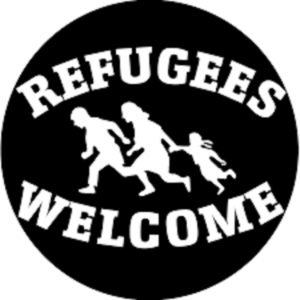The Volokh Conspiracy
Mostly law professors | Sometimes contrarian | Often libertarian | Always independent
World Refugee Day is a Good Time to Consider Expanding the Ridiculously Narrow Legal Definition of "Refugee"
The definition excludes a vast range of people fleeing horrific violence and oppression.

Today is World Refugee Day. It's an appropriate time to remember the millions of refugees around the world. The refugee situation this year is even worse than usual, exacerbated by Russia's ongoing war of aggression against Ukraine, and the oppression inflicted by Venezuela's socialist government, each of which has led some 7 million people to flee.
In ordinary language, we use the term "refugee" to refer to anyone fleeing severe violence or oppression. But the legal definition of the term is far narrower, excluding many people fleeing truly horrific conditions. Only those meeting the narrow legal definition are entitled to refuge without threat of deportation under international law and the domestic law of most liberal democracies, including the US.
I wrote about the need to expand the legal definition on this date last year, and the issue is just as urgent today. Here is an excerpt (the original post goes into greater detail, and addresses a number of potential counterarguments):
The 1951 Refugee Convention (as later amended) bars governments from deporting refugees, defined as people whose "life or freedom would be threatened on account of [their] race, religion, nationality, membership of a particular social group or political opinion." US law has a very similar definition.
This definition excludes vast numbers of people fleeing horrific violence and oppression. For example, it doesn't include the vast majority of North Koreans, subjects of the world's most repressive regime. For the most part, that government's victims are targets of what we might call "equal-opportunity oppression" doled out to almost everyone who lives under the regime's rule, not just to members of specific racial, ethnic, religious or other "social" groups. It doesn't even include people subjected to forced labor, as long as their enslavement wasn't based on any of the above prohibited characteristics…..
Even if terrorists or repressive governments target you personally, you still don't qualify for refugee status unless their motive was one of the criteria listed above…
Ideally, we should expand the definition of "refugee" to cover everyone fleeing violence, war, and repression, regardless of the oppressors' motives for targeting the person in question. If that isn't feasible, for political reasons, legal scholars and other experts have advanced a variety of proposals for incremental expansion of the "refugee" category….


Show Comments (96)